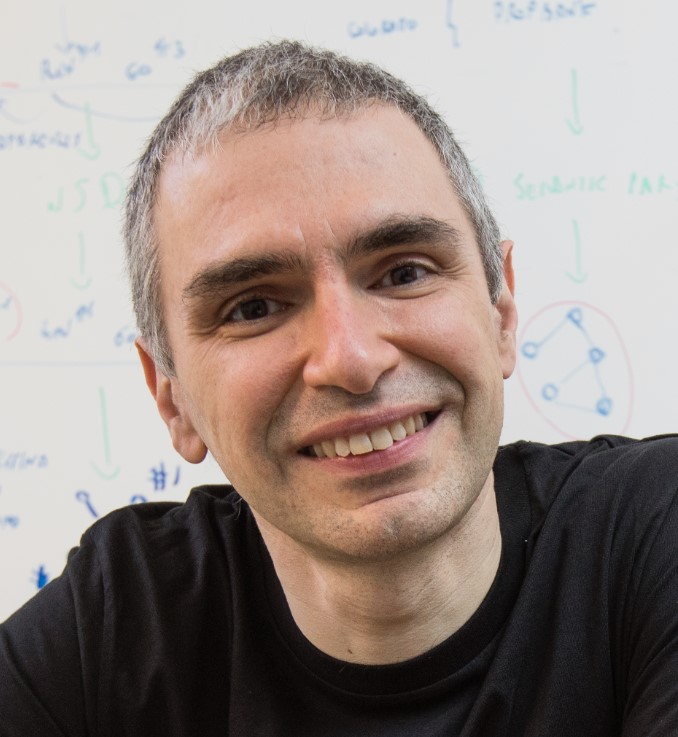
Vit "Vitya" Novacek
December 1st, 2023 (recording)
Title: Curing Cancer with Knowledge Graphs (and other Outrageous Ideas) (access)
Vít is an Associate Professor at Faculty of Informatics, Masaryk University. He is also affiliated with Masaryk Memorial Cancer Institute, helping to coordinate various strategic activities related to biomedical AI applications. He holds a PhD from the DERI (now Data Science) Institute at University of Galway, and various other degrees that are not that terribly important anymore. Vít's research revolves around discovery informatics based on machine learning, explainable AI and text mining, with a strong emphasis on oncology use cases. He has published 40+ peer-reviewed papers in various high-profile journals and conferences (Briefings in Bioinformatics, PLOS Computational Biology, CIKM or ECML/PKDD, to name a few examples). Vít has helped to acquire and coordinate multiple research projects and industrial collaborations (working with national, European, US and Japanese partners). The total amount of funding Vít has secured for his various research groups is ca. €1,800,000. He has 3 patents granted and 3 pending (in the EU, US and JP jurisdictions), and serves on the AI Advisory Board of BioXcel Therapeutics, Inc. Last but not least, Vít has prepared, organised and taught undergraduate and postgraduate courses on AI, machine learning, bioinformatics and health informatics (some having in excess of 300 students enrolled).
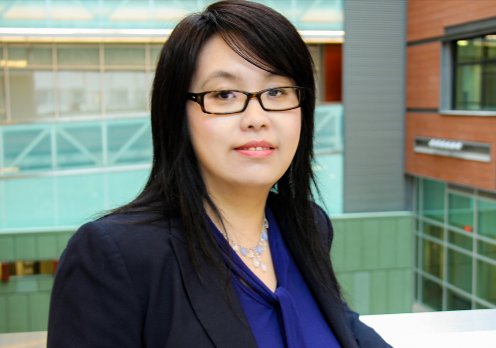
Cui Tao
November 17th, 2023 (recording)
Title: Harnessing AI and Informatics in Biomedical & Clinical Endeavors (access)
Dr. Tao is the Dr. Doris Ross Professor of Biomedical Informatics at University of Texas Health Science Center at Houston (UTHealth), McWilliams School of Biomedical Informatics. She also directs the Center of Biomedical Semantics and Data Intelligence. She is an elected fellow of the American College of Medical Informatics and a recipient of the Presidential Early Career Award for Scientists and Engineers (PECASE). Dr. Tao is an expert in AI and informatics with focus on big biomedical data normalization, integration, and analysis. Dr. Tao and her team possess vast experience in constructing and assessing various biomedical ontologies. They have spearheaded the development of ontologies for diverse purposes, including drug repurposing, phenotyping, nutrition, vaccination, social networks, and more. In addition, they also focus on build innovative AI methods for different applications such as clinical decision support, clinical trial simulation, drug repurposing, vaccine/drug safety analysis, and patient-provider communication.
Roberto Navigli
November 10th, 2023 (recording)
Title: BabelNet to the Test of Time: Extracting Language-Independent Meaning from Text in the Era of ChatGPT (access)
Roberto Navigli is Professor of Computer Science at the Sapienza University of Rome, where he leads the Sapienza NLP Group. He is one of the few researchers to have received two prestigious ERC grants in AI on multilingual word sense disambiguation (2011-2016) and multilingual language- and syntax-independent open-text unified representations (2017-2022), selected among the 15 projects (out of 10,000) through which the ERC transformed science. In 2015 he received the META prize for groundbreaking work in overcoming language barriers with BabelNet, a project also highlighted in The Guardian and Time magazine, and winner of the Artificial Intelligence Journal prominent paper award 2017 (and a subsequent AIJ prominent paper award in 2023 on the NASARI sense embeddings). He is the co-founder of Babelscape, a successful company which enables Natural Language Understanding in dozens of languages. He served as Associate Editor of the Artificial Intelligence Journal (2013-2020) and Program Chair of ACL-IJCNLP 2021. He will serve as General Chair of ACL 2025.
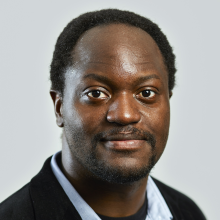
Axel-Cyrille Ngonga Ngomo
October 27th, 2023 (recording)
Title: Neuro-Symbolic Class Expression Learning (access)
Axel Ngonga is a professor at Paderborn University, where he heads the Data Science Group. He studied Computer Science in Leipzig. In his PhD thesis, he developed knowledge-poor methods for the extraction of taxonomies from large text corpora. After completing his PhD, he wrote a Habilitation on link discovery with a focus on machine learning and runtime optimization. In his current research, he focuses on data-driven methods to improve the lifecycle of knowledge graphs. These include techniques for the extraction of knowledge graphs, the verification of their veracity, their integration and fusion, their use in machine learning, and their exploitation in user-facing applications such as question answering systems and chatbots. He is the grateful recipient of over 25 international research prizes, including a Next Einstein Fellowship, a Lamarr Fellowship and 6 best research paper awards.
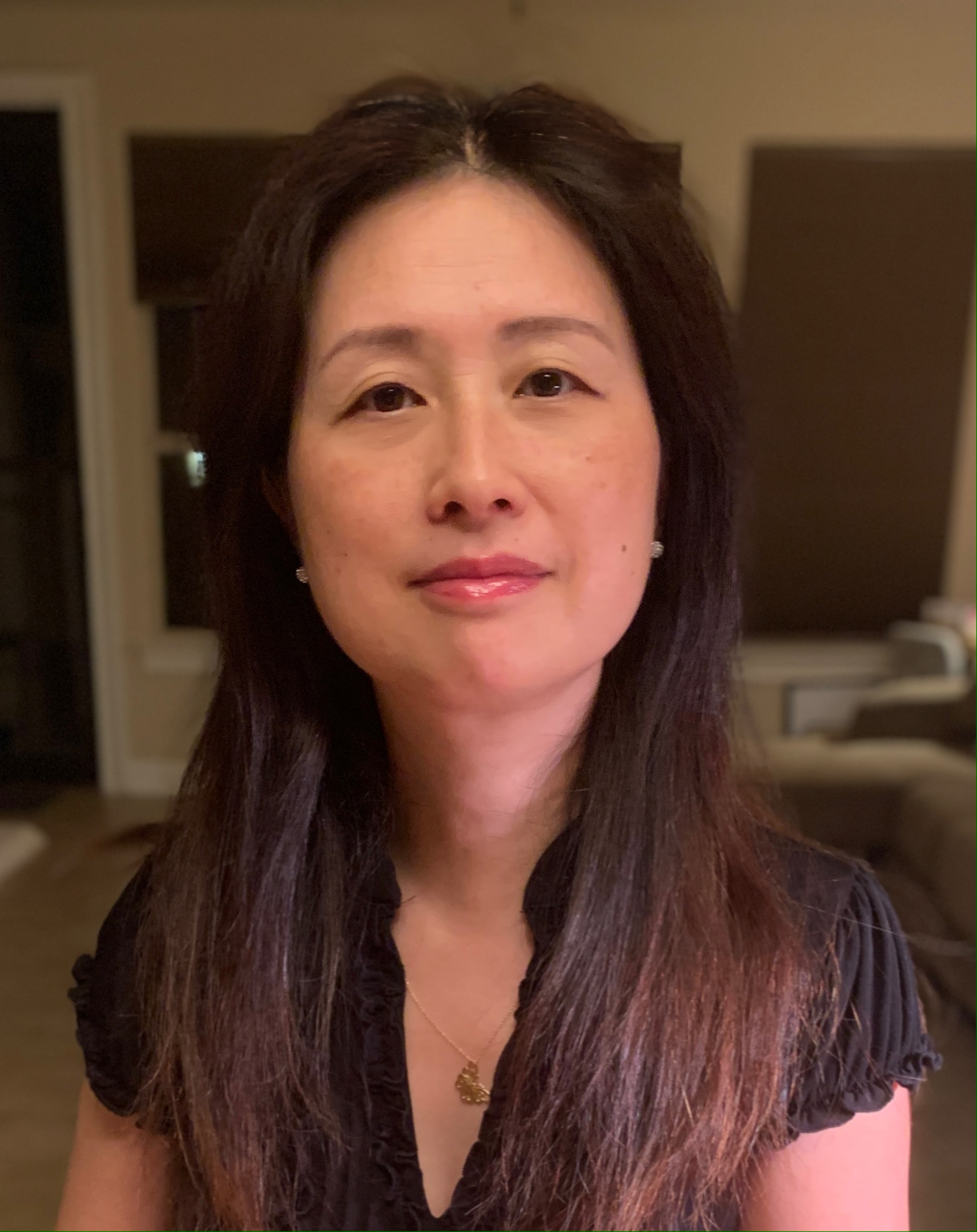
Ying Ding
October 20th, 2023 (recording)
Title: Knowledge Graph: Drug Discovery, PubMed, and Clinical Trial (access)
Dr. Ying Ding is Bill & Lewis Suit Professor at School of Information, and adjunct Professor at Department of Population Health at Dell Medical School, University of Texas at Austin. She leads the AI in Health Lab at School of Information and Dell Medical School with the focus on medical imaging, medical notes summary, health risk prediction, and explainable AI. She has been involved in various NIH, NSF and European-Union funded projects. She has published 300+ papers in journals, conferences, and workshops, and served as the program committee member for 200+ international conferences. She is the co-editor of book series called Semantic Web Synthesis by Morgan & Claypool publisher, the co-editor-in-chief for Data Intelligence published by MIT Press, and serves as the editorial board member for several top journals in Information Science and Semantic Web. She is the co-founder of Data2Discovery company advancing cutting edge AI technologies in drug discovery and healthcare. Her current research interests include medical imaging, knowledge graph, graph deep learning, AI in health, data-driven science of science, and team collaboration.

Michel Dumontier
October 13th, 2023 (recording)
Title: Towards Biomedical Neurosymbolic AI: From Knowledge Infrastructure to Explainable Predictions (access)
Dr. Michel Dumontier is a Distinguished Professor of Data Science at Maastricht University, founder and executive director of the Institute of Data Science, and co-founder of the FAIR (Findable, Accessible, Interoperable and Reusable) data principles. His research explores socio-technological approaches for responsible discovery science, which includes collaborative multi-modal knowledge graphs, privacy-preserving distributed data mining, and AI methods for drug discovery and personalized medicine. His work is supported through the Dutch National Research Agenda, the Netherlands Organisation for Scientific Research, Horizon Europe, the European Open Science Cloud, the US National Institutes of Health, and a Marie-Curie Innovative Training Network. He is the editor-in-chief for the journal Data Science and is internationally recognized for his contributions in bioinformatics, biomedical informatics, and semantic technologies including ontologies and linked data.

Guillaume Cabanac
October 6th, 2023 (recording)
Title: Decontamination of the scientific literature with the Problematic Paper Screener: Flagging suspect/erroneous/fraudulent papers to crowdsource post-publication reassessments (access)
Guillaume Cabanac is a Professor of Computer Science at the University of Toulouse, France. He holds a research chair at the Institut Universitaire de France titled “Decontamination of the scientific literature.” Cabanac develops the Problematic Paper Screener that contributes to the identification, reporting, and retraction of algorithmically generated and fraudulent papers. Cabanac’s research was profiled in the Nature’s 10: he was nicknamed ‘Deception sleuth’ in the journal’s annual list of ‘ten people who helped shape science in 2021.’

Paul Groth
September 29th, 2023 (recording)
Title: Knowledge (Graphs) in the Language Model Era (access)
Paul Groth is a Professor of Algorithmic Data Science at the University of Amsterdam where he leads the Intelligent Data Engineering Lab (INDElab). He holds a Ph.D. in Computer Science from the University of Southampton (2007) and has done research at the University of Southern California, the Vrije Universiteit Amsterdam and Elsevier Labs. His research focuses on intelligent systems for dealing with large amounts of diverse contextualized knowledge with a particular focus on web and science applications. This includes research in data provenance, data integration and knowledge sharing.
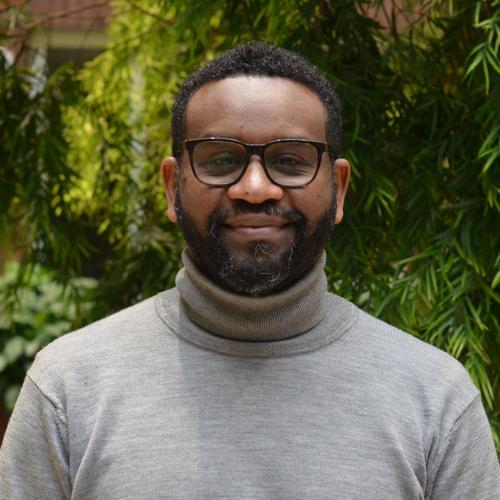
Yousif Hassan
September 22nd, 2023 (recording)
Title: Fixing development with data: Responsible AI and state building in Africa (access)
Yousif Hassan is Illinois Distinguished Fellow and Postdoctoral Research Associate at the School of Information Sciences. He is a Faculty Affiliate with the Center for African Studies at the University of Illinois Urbana-Champaign. His research examines the relation between race, digital technology, and technoscientific capitalism. Dr. Hassan’s work is at the intersection of social and racial justice, and technology policy focusing on the social, economic, and political implications of emerging technologies including artificial intelligence (AI) and data. Prior to joining the iSchool, Dr. Hassan was a research fellow at the Harvard Kennedy School. His most recent project investigates the development of AI and its innovation ecosystem across multiple African countries focusing on data governance and the sociotechnical knowledge production practices of the state, scientists, and the tech industry.
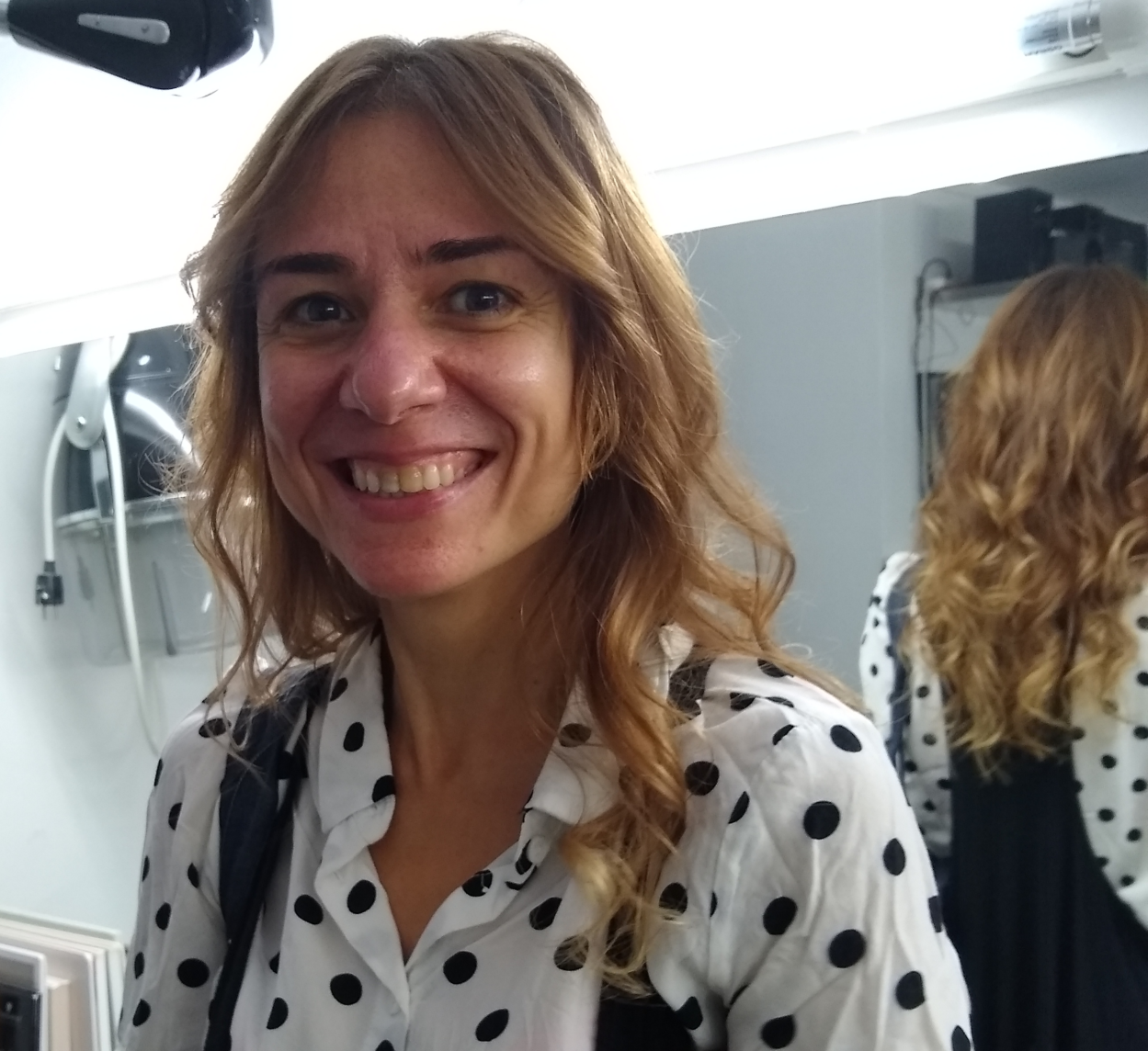
Núria Queralt Rosinach
September 15th, 2023 (recording)
Title: Applying FAIR in the LUMC hospital (access)
Núria Queralt Rosinach, born in Reus (Catalonia, Spain), is a biomedical informatics researcher who joined the Biosemantics Group in April 2020. She obtained a MSc in Bioinformatics from Pompeu Fabra University (UB/UPF) in 2008 and a PhD in Computational Chemistry from Rovira i Virgili University (URV) in 2010. She has expertise in Semantic Web technologies, Artificial Intelligence (AI) approaches over knowledge graphs, formal logic and interpretable machine learning for hypothesis generation and drug repurposing. She is currently investigating how to exploit FAIR data for explainable AI and hypothesis generation to improve rare, common and infectious disease discovery, how to integrate FAIR research and patient data for modelling, prediction, rationalization and analysis, and how to make FAIR data clinically actionable for bench to bedside translation.

Jian Tang
September 8th, 2023 (recording)
Title: Geometric Deep Learning for Drug Discovery (access)
Jian Tang is currently an associate professor at Mila - Quebec AI Institute, a leading AI Institute in Canada founded by A.M. Turing Award laureate Yoshua Bengio. He is also a Canada CIFAR AI Research Chair and the founder and CEO of BioGeometry, an AI startup focusing on generative AI for antibody discovery. His main research interests are deep generative models, graph machine learning and their applications to drug discovery. He is an international leader in graph machine learning, and his representative work LINE on node representation learning has been widely recognized and cited more than 5,000 times. He has also done many pionnering work on AI for drug discovery, including the first open-source machine learning framework for drug discovery, TorchDrug and TorchProtein.

Pascal Hitzler
September 1st, 2023 (recording)
Title: Explaining hidden neuron activations using Semantic Web methods (access)
Pascal Hitzler is Professor and endowed Lloyd T. Smith Creativity in Engineering Chair and Director of the Center for Artificial Intelligence and Data Science (CAIDS) at the Department of Computer Science at Kansas State University. He is director of the Data Semantics (DaSe) Lab. In 2001 he obtained a PhD in Mathematics from the National University of Ireland, University College Cork, and in 1998 a Diplom (Master equivalent) in Mathematics from the University of Tübingen in Germany. For more information about him, please visit this link.

Juan Sequeda
August 25th, 2023 (recording)
Title: A Knowledge First World: a knowledge revolution is coming (...or at least there should be one!) (access)
Juan Sequeda is the Principal Scientist and Head of the AI Lab at data.world. He holds a PhD in Computer Science from The University of Texas at Austin. Juan’s research and industry work has been on the intersection of data and AI, with the goal to reliably create knowledge from inscrutable data, specifically designing and building Knowledge Graph for enterprise data and metadata management. Juan is the co-author of the book “Designing and Building Enterprise Knowledge Graph” and the co-host of Catalog and Cocktails, an honest, no-bs, non-salesy data podcast.
Spring 2023
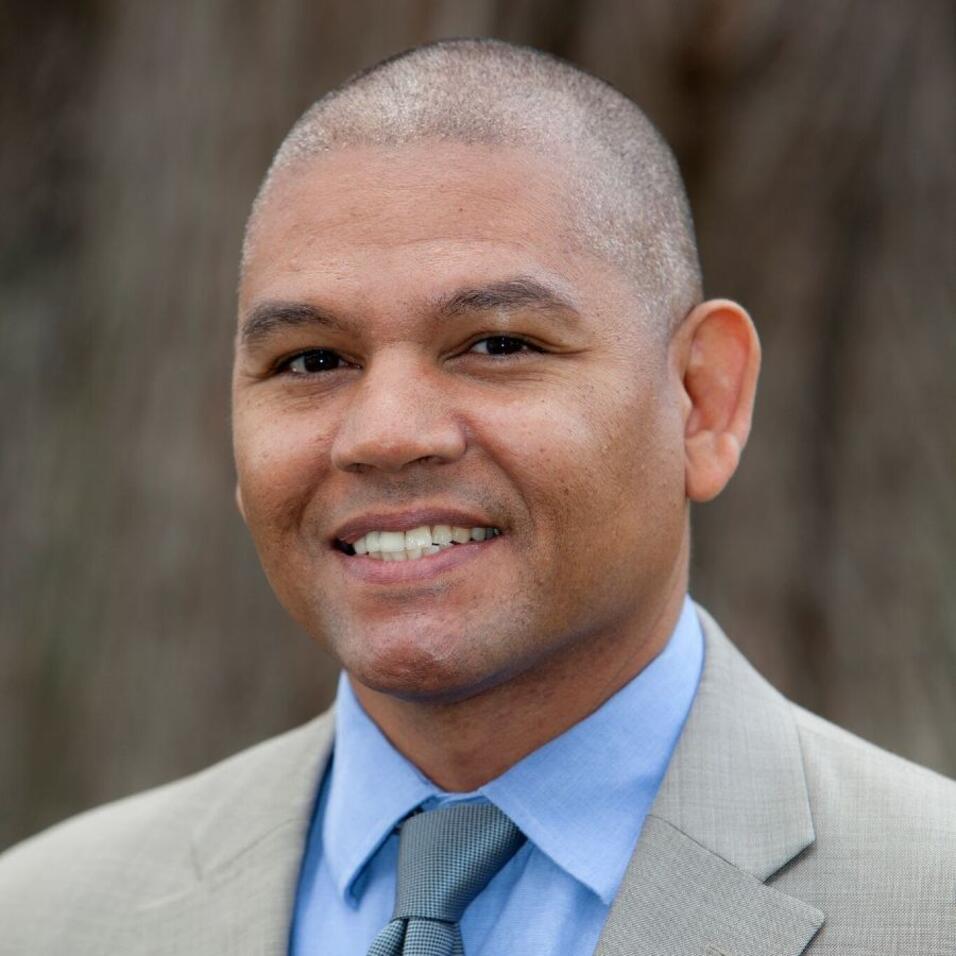
Keith Hunter
April 28th, 2023 (recording)
Title: Differences in Network Perceptions within and across Groups (access)
Keith Hunter is an associate professor at the University of San Francisco’s School of Management. His primary research interests revolve around organizational networks, culture, and leadership. He is particularly interested in how social networks both influence and reflect the active mental models and power dynamics within organizations. His investigations of the patterns of interaction among people and their implications for human behavior and organizational outcomes are of critical significance to tomorrow's business leaders.
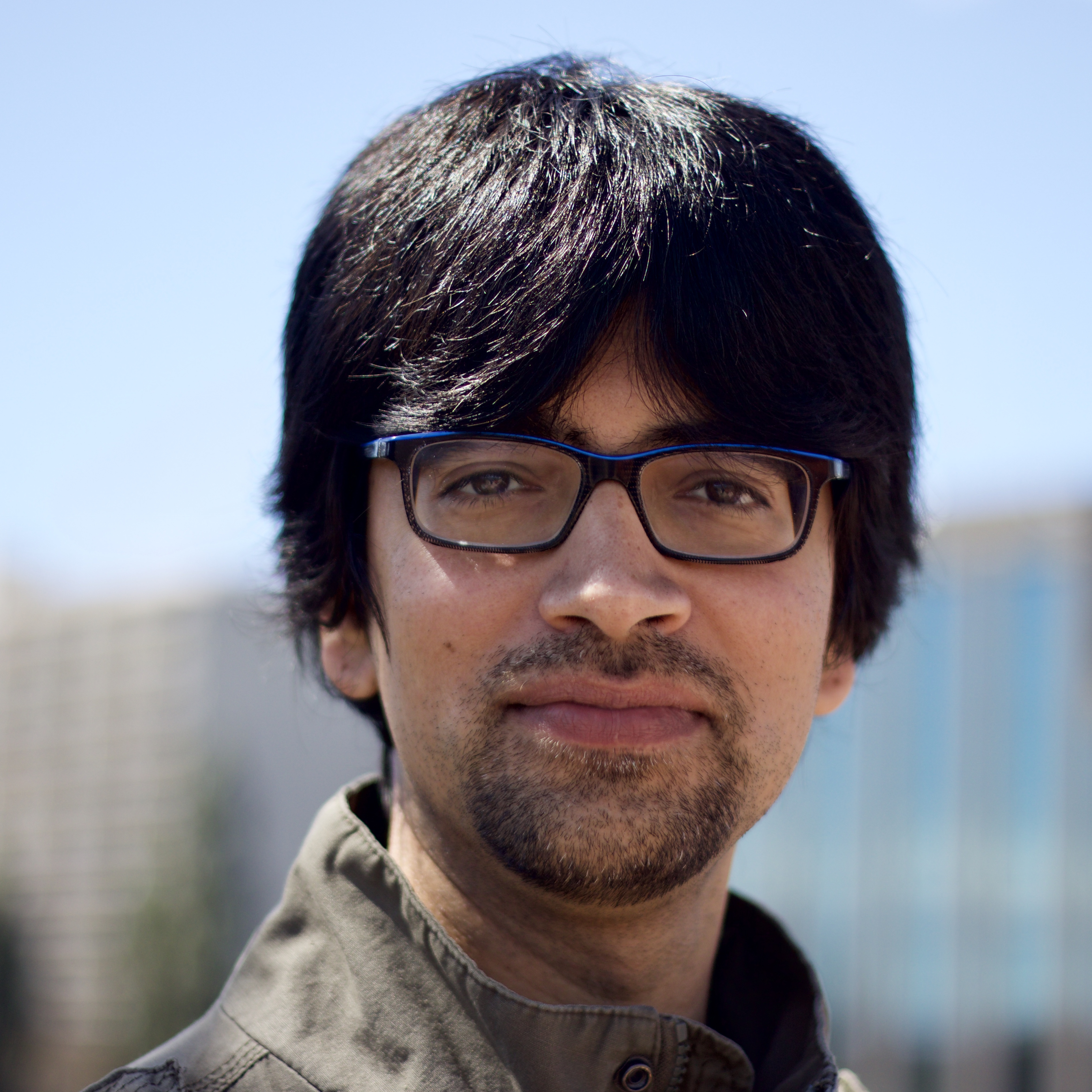
Jay Pujara
April 14th, 2023
Title: Knowledge Graphs for a Deeper Understanding of Science (access)
Jay Pujara is a research assistant professor of Computer Science at the University of Southern California as well as research team lead and director of the Center on Knowledge Graphs at USC's Information Sciences Institute. His research focuses on artificial intelligence, specifically knowledge graphs and statistical relational learning. Jay is the author of over fifty peer-reviewed publications, has received four best paper awards, and been featured in AI Magazine.
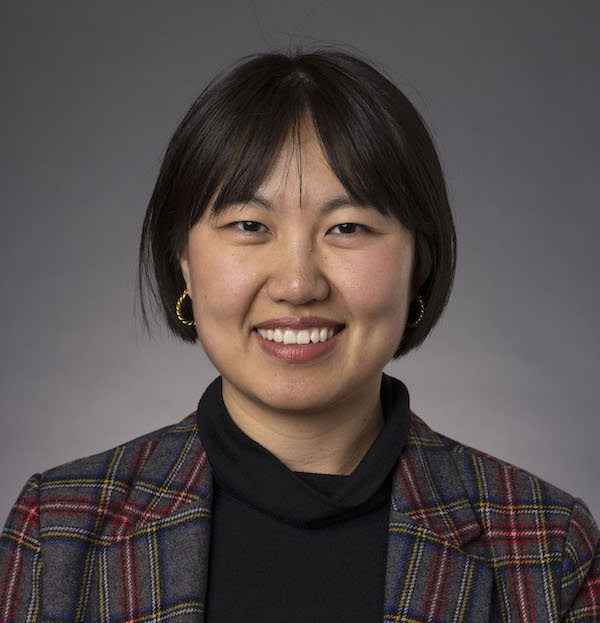
Lucy Lu Wang
April 7th, 2023
Title: Biomedical evidence extraction and synthesis (access)
Lucy Lu Wang is an Assistant Professor at the University of Washington Information School. Her research uses natural language processing and data science techniques to make sense of scientific and research output. Specifically, she investigates NLP methods for understanding biomedical text, systems to help us make better and more data-driven care decisions, as well as how text analysis techniques can be used to identify trends in research communication.

Tiffany Callahan
March 31st, 2023 (recording)
Title: Learning Deep Translational Patient Representations for Rare Disease Classification and Subphenotyping (access)
Dr. Callahan received her Ph.D. in Computational Biology from the University of Colorado Anschutz Medical Campus in 2021 and is currently a Postdoctoral Research Fellow in the Department of Biomedical Informatics at Columbia University Irving Medical Center. Dr. Callahan’s PhD thesis leveraged graph representation learning and neural-symbolic reasoning of large-scale biological knowledge graphs in order to develop realistic estimates of human disease mechanisms. She is currently applying these methods to improve the detection, prediction, and understanding of complex phenomena like phenotyping of pediatric rare disease and adverse event detection.
Tim Clark
March 24th, 2023 (recording)
Title: Evidence Graphs and AI/ML Explainability (access)
Tim Clark is an Associate Professor of Public Health Sciences, Neurology, and Data Science at the University of Virginia (UVA). He has played a major role in the development and application of FAIR (Findable, Accessible, Interoperable, Reusable) principles and design patterns to scientific publications and repositories. His current research focuses on the development of provenance-aware research data commons environments. He is a co-PI of the NIH Bridge2AI: Cell Maps for Artificial Intelligence project, and Technical Director of UVA’s Center for Advanced Medical Analytics. He holds a Ph.D. in Computer Science from the University of Manchester.

Michael Galkin
March 10th, 2023 (recording)
Title: Towards Neural Graph Databases (access)
Michael is a Research Scientist at Intel AI Labs working on Graph Machine Learning and Geometric Deep Learning. Previously, Michael was a postdoc at Mila - Quebec AI Institute working with Will Hamilton, Jian Tang, and Reihaneh Rabbany on various graph learning tasks ranging from reasoning and knowledge graphs to molecular representation learning.

Robert Hoehndorf
March 3rd, 2023 (recording)
Title: Machine Learning with Biomedical Ontologies (access)
Robert Hoehndorf is an Associate Professor of Computer Science at King Abdullah University of Science and Technology (KAUST), where he is the Principal Investigator of the Bio-Ontology Research Group (BORG). His main academic interests are knowledge representation and symbolic approaches to artificial intelligence and using them to gain novel biological insights. They develop knowledge-based methods for the analysis of large, complex and heterogeneous datasets in biology, and apply them to understanding genotype-phenotype relations.

Emanuel Sallinger
February 24th, 2023 (recording)
Title: Knowledge Graphs in Action: a Tour of Extensions and Real-World Applications of the Vadalog System (access)
Emanuel Sallinger is Assistant Professor of Computer Science at Vienna University of Technology (TU Wien) and Lecturer for Knowledge Graphs and Database Design at Oxford University. His main research focus is on Knowledge Graphs, including all theoretical and practical aspects. In particular, he is interested in reasoning in such systems, including all of the AI methodologies for that. Within such systems, his interest is in achieving scalable solutions, making sure that theory translates into practice.

Erin Leahey
February 17th, 2023 (recording)
Title: Papers and Patents are Becoming Less Disruptive over Time (access)
Erin Leahey is Professor and Director of Sociology at the University of Arizona and an elected member of the Sociological Research Association. She is known largely for her work on science, scientific careers, and inequality therein. Recently she has focused on studying the costs, benefits, and precursors of interdisciplinary research at both the individual and organization levels.
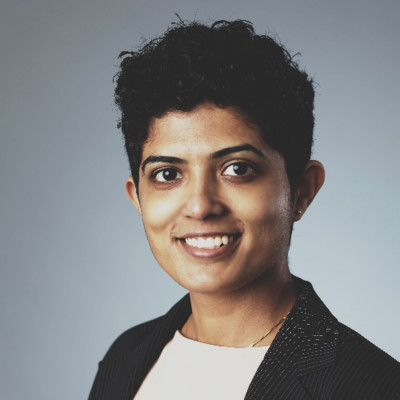
Jennifer D’Souza
February 10th, 2023 (recording)
Title: Semantic Publishing of Scientific Contributions in the Open Research Knowledge Graph (access)
Jennifer D’Souza is a Postdoctoral Researcher at the TIB Leibniz Information Centre for Science and Technology in the R&D Department. Her research interests mainly include developing supervised machine learning techniques for natural language processing to facilitate text mining and automated information extraction. Her current primary research theme is knowledge graph construction from scientific text by NLP methods. Aside from this, she is also interested in scientometrics.
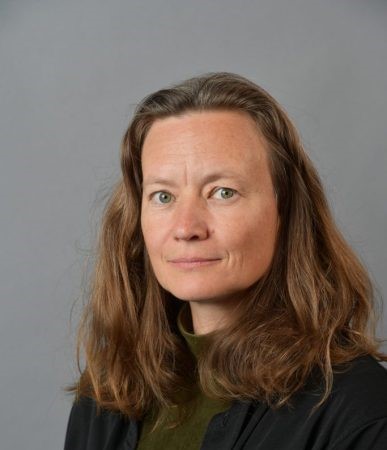
Anita Bandrowski
February 3rd, 2023 (recording)
Title: Can Research Resource Identifiers (RRIDs) be Used to Better Understand Scientific Literature? (access)
Dr. Bandrowski is a researcher in the department of neuroscience at UCSD, a visiting professor at the QUEST center at the Berlin Institute of Health, and the CEO of a technology startup called SciCrunch Inc. She started and runs the Research Resource Identification Initiative, asking authors to put persistent unique identifiers, RRIDs for tools they used in their paper, into their publications as a way to improve parts of reproducibility in science. She is passionate about fixing bits of the reproducibility crisis in science that can be engineered out of existence!

Will Byrd
January 27th, 2023 (recording)
Title: The mediKanren Biomedical Reasoner and the Precision Medicine Case Review Process (access)
Will Byrd is a scientist at the Hugh Kaul Precision Medicine Institute at the University of Alabama at Birmingham. He leads the Precision Medicine Institute's effort to develop mediKanren, biomedical reasoning software funded under the NIH NCATS Biomedical Data Translator Project. Will is one of the creators of the miniKanren family of constraint logic programming languages, and co-author of 'The Reasoned Schemer' (MIT Press, 2018).

Peter A. Gloor
January 20th, 2023 (recording)
Title: Happimetrics - Leveraging AI to Untangle the Surprising Link Between Ethics, Happiness and Business Success (access)
Peter A. Gloor is a Research Scientist at the Center for Collective Intelligence at MIT’s Sloan School of Management where he leads a project exploring Collaborative Innovation Networks (COIN). His research focus is on the analysis of temporal communication patterns of virtual teams to increase knowledge worker innovation and productivity by discovering and optimizing Collaborative Innovation Networks and Collaborative Knowledge Networks.
In Fall 2021, Spring 2022, and Fall 2022, we focused our speaker series on “Responsible Data Science and AI Speaker Series”. In this series, we discussed topics such as equity, fairness, biases, ethics, and privacy. For a list of prior talks please see below.
Fall 2022

Anissa Tanweer
November 18th, 2022 (recording)
Title: Data Science Ethics in Practice and for Practice: An Ethnographic Perspective (access)
Anissa Tanweer is a research scientist at the eScience Institute. She conducts ethnographic research on the practice and culture of data science, and brings a sociotechnical lens to bear on the design and implementation of data science training programs. She is passionate about leveraging action research to foster reflexive, ethical data science practices.

Fariba Karimi
November 11th, 2022 (recording)
Title: Minorities in networks and algorithms (access)
Fariba Karimi is a team leader in computational social science at the Complexity Science Hub Vienna and an assistant professor at the Department of Network and Data Science at Central European University since March 2021. Her research focuses on computational social science, the emergence of biases and inequality in networks and algorithms, and modeling human behavior.

Manish Raghavan
November 4th, 2022 (recording)
Title: The Challenge of Understanding What Users Want: Inconsistent Preferences and Engagement Optimization (access)
Manish Raghavan is the Drew Houston (2005) Career Development Professor at the MIT Sloan School of Management (in the Information Technology group) and department of Electrical Engineering and Computer Science. His primary interests lie in the application of computational techniques to domains of social concern, including online platforms, algorithmic fairness, and behavioral economics, with a particular focus on the use of algorithmic tools in the hiring pipeline.

Emoke-Agnes Horvath
October 28th, 2022 (recording)
Title: Science on the Web: How networks bias academic communication online (access)
Ágnes Horvát is an Assistant Professor in the Department of Communication Studies, (by courtesy) the Department of Computer Science, and (also by courtesy) the Kellogg School of Management at Northwestern University. Her research seeks to investigate how networks induce biased information production, sharing, and processing on digital platforms.

Vera (Qingzi) Liao
October 21st, 2022 (recording)
Title: Human-Centered Explainable AI (XAI): from Algorithms to User Experiences (access)
Vera Liao is a Principal Researcher at Microsoft Research Montreal where she is part of the FATE group. She is a human-computer-interaction (HCI) scientist by training and have broad interests in human-AI interaction. Most recently she hs been working on explainable AI and responsible AI.
Faculty host: Yun Huang

Karina Rider
October 14th, 2022 (recording)
Title: Building Things that Matter: The Ambivalence of Tech for Good Initiatives (access)
Karina Rider is a sociologist studying how technologists try to build ‘tech for good.’ She is especially interested in how technologists think about the relationship between their careers and the types of technologies–and technological futures–they want to build. Her current project investigates civic technology nonprofits in the San Francisco Bay Area, and she is in the planning phase of a new project exploring grassroots support and opposition for tech campus construction projects.
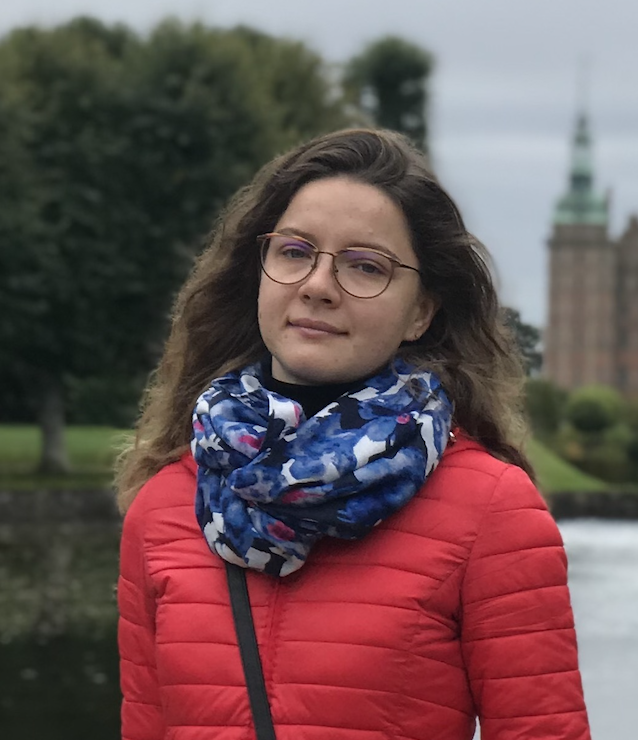
Pepa Kostadinova Atanasova
October 7th, 2022 (recording)
Title: Towards Explainable and Accountable Fact-Checking (access)
Pepa Atanasova is a last-year Ph.D. student at the Natural Language Processing Section at the University of Copenhagen, supervised by Isabelle Augenstein. Her main research interests lie in the area of explainable machine learning with applications in complex reasoning tasks such as fact checking and question answering.

Jacob Ward
September 30th, 2022 (recording)
Title: The Loop: How Technology is Creating a World without Choices and How to Fight Back (access)
Jacob is a television correspondent and producer. Since 2018 he has been a correspondent for NBC News, reporting on the unanticipated consequences of science and technology in our lives. He was also a former fellow at Stanford University’s Center for Advanced Study in the Behavioral Sciences, a television series host on the science and implications of bias, and the editor-in-chief of Popular Science.

Milena Tsvetkova
September 16th, 2022 (recording)
Title: Inequality and fairness with heterogeneous endowments (access)
Milena Tsvetkova is an Assistant Professor in the Department of Methodology at the London School of Economics and Political Science and completed her PhD in Sociology at Cornell University in 2015. Her research interests lie in the fields of computational and experimental social science. She employs online experiments, network analysis, and agent-based models to study fundamental social phenomena such as cooperation, contagion, and inequality.
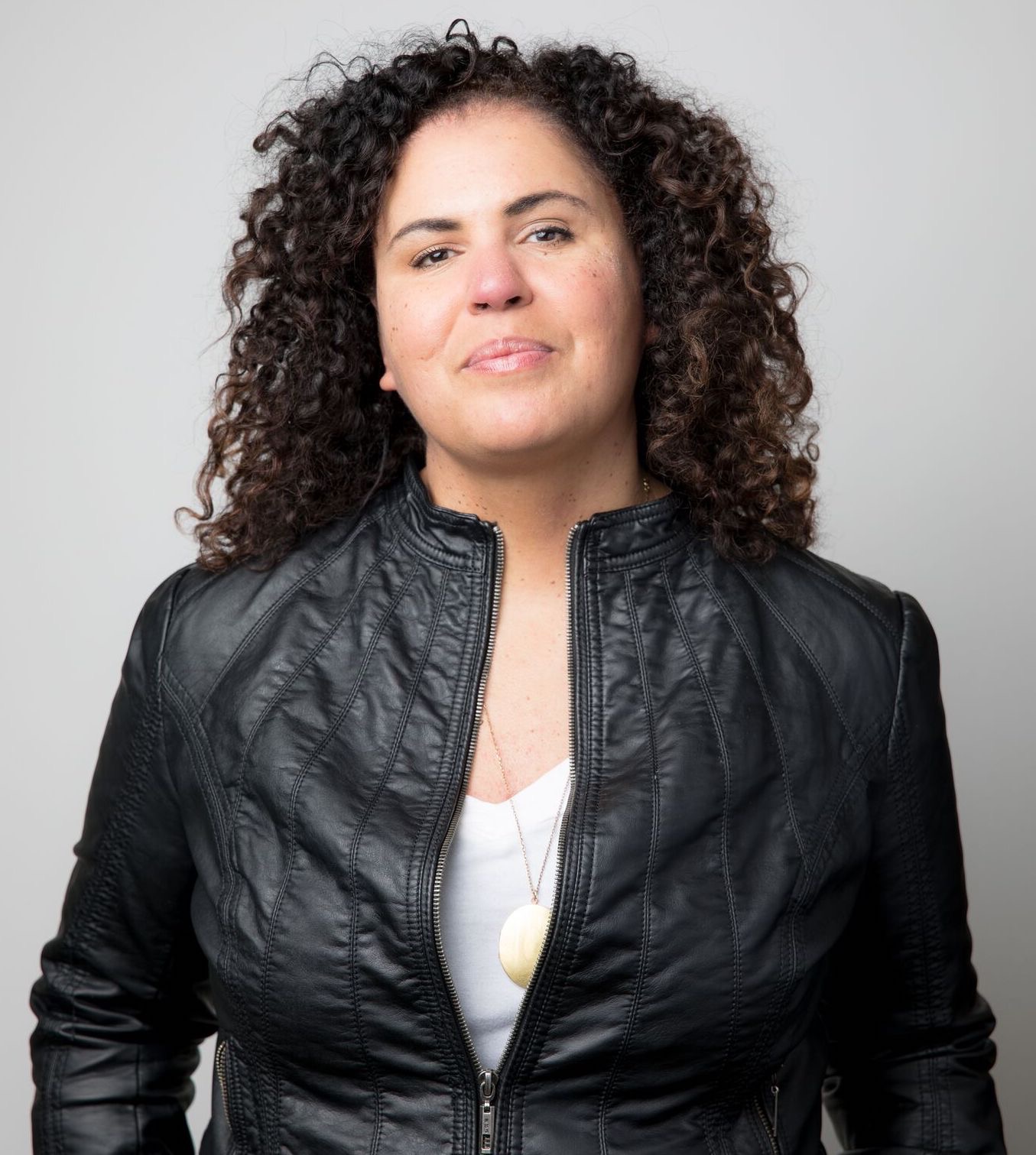
Safiya U. Noble
September 9th, 2022
Title: Taking on Big Tech: New Paradigms for New Possibilities (access)
Safiya U. Noble is an internet studies scholar and Professor of Gender Studies and African American Studies at the University of California, Los Angeles (UCLA). In 2021, she was recognized as a MacArthur Foundation Fellow (also known as the “Genius Award”) for her ground-breaking work on algorithmic discrimination.
Spring 2022

Byron Wallace
April 22nd, 2022
Title: Methods to Aid Model Debugging: From Rationales to Influence (access)
Byron Wallace is an associate professor in the Khoury College of Computer Sciences at Northeastern University. His research is primarily in natural language processing (NLP) methods, with an emphasis on their application in health informatics.
Faculty host: Halil Kilicoglu
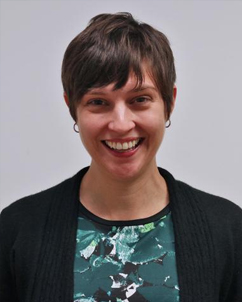
Katie Shilton
April 15th, 2022
Title: Trustworthiness in social data science: Excavating awareness and power (access)
Katie Shilton is an associate professor in the College of Information Studies at the University of Maryland, College Park, and leads the Ethics & Values in Design (EViD) Lab. Her research explores ethics and policy for the design of information technologies.


